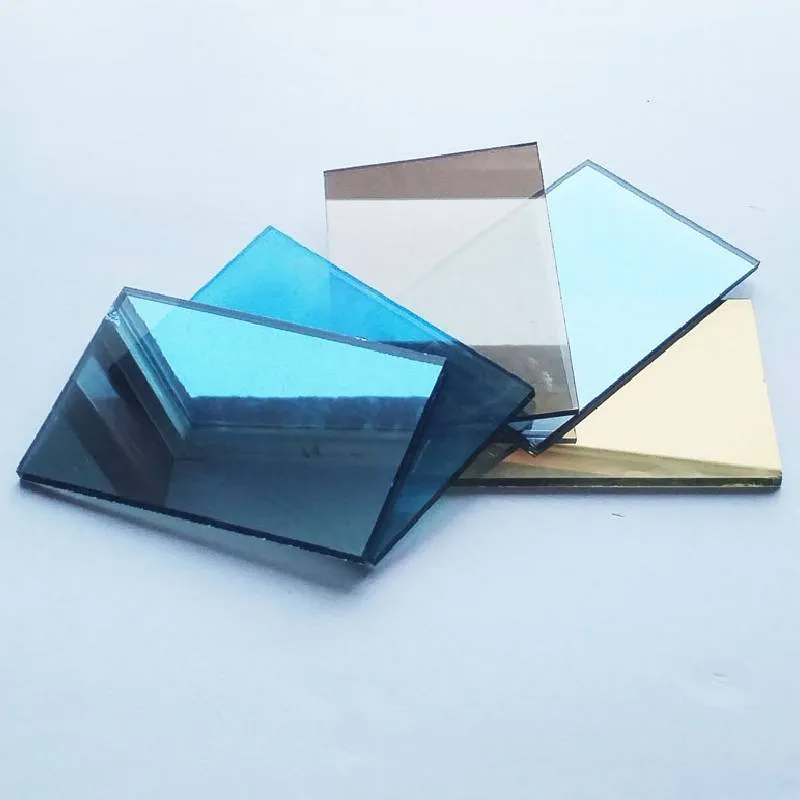The Process of Toughened Glass Making
Toughened glass, also known as tempered glass, is a type of safety glass that is treated to be much stronger than normal glass. This process of toughening glass not only enhances its strength and safety but also allows it to be used in a variety of applications, from skyscrapers to shower doors. The production of toughened glass involves several precise steps, requiring careful control of temperature and timing to achieve the desired properties.
1. The Raw Materials
The process of making toughened glass begins with the selection of raw materials. Typically, soda-lime glass is used due to its favorable properties and cost-effectiveness. The raw materials for soda-lime glass include silica sand, soda ash, and limestone. These ingredients are melted together in a furnace at temperatures exceeding 1600 degrees Celsius. This high-temperature environment turns the raw materials into a molten glass that can be formed into sheets.
2. Forming the Glass
Once the glass is molten, it is formed into sheets using various methods such as the float process or rolling. In the float process, molten glass is poured onto a bath of molten tin, causing it to spread out and flatten into a smooth sheet. This method results in glass that is uniform in thickness and transparency, which is crucial for further processing. After forming, the sheets are cooled to a temperature at which they can be safely handled.
3. Cutting and Edge Work
After the glass sheets have cooled, they are cut to the required dimensions. At this stage, edge work is often performed to smooth and polish the edges. Proper edge treatment is essential as it minimizes the risks of chipping or breaking during the subsequent toughening process. Edge work may involve grinding and polishing to achieve a refined finish that ensures both aesthetics and safety.
toughened glass making
4. The Toughening Process
The real magic happens during the toughening process, where the glass undergoes thermal treatment. The glass sheets are heated in a furnace to approximately 620 degrees Celsius. This heating process makes the glass soft and pliable. The sheets are then rapidly cooled using jets of cold air, a process known as quenching. This rapid cooling creates a compressive stress on the surface of the glass while keeping its internal structure under tension.
The result of this thermal treatment is a glass that is significantly stronger than untreated glass. In fact, toughened glass can withstand impacts and thermal stresses that would cause normal glass to shatter. This strength makes it ideal for use in high-stress environments, such as windows in high-rise buildings, glass doors, and even in automotive applications.
5. Applications of Toughened Glass
The applications of toughened glass are vast and varied. Its strength and safety characteristics make it suitable for architectural elements, including facades and partitions in commercial buildings. In residential settings, toughened glass is often used for shower enclosures, glass tabletops, and balustrades. Additionally, toughened glass is extensively used in the automotive industry, where it is employed in side and rear windows for its shatter-resistant qualities.
Another significant application is in the electronics industry; toughened glass is used in screens for smartphones and tablets, where durability is essential. The ability of toughened glass to withstand thermal changes also makes it suitable for contexts like oven doors and cooktops.
Conclusion
Toughened glass is a remarkable material, thanks to its durable and safety-oriented properties. The process of creating toughened glass is a blend of art and science, combining advanced techniques with precision engineering. As technology continues to advance, the methods for producing tougher, lighter, and more aesthetically pleasing glass will likely evolve, further broadening the possibilities for this versatile material. Whether in architecture, transport, or electronics, toughened glass is poised to remain a key player in modern design and safety solutions.
 Afrikaans
Afrikaans  Albanian
Albanian  Amharic
Amharic  Arabic
Arabic  Armenian
Armenian  Azerbaijani
Azerbaijani  Basque
Basque  Belarusian
Belarusian  Bengali
Bengali  Bosnian
Bosnian  Bulgarian
Bulgarian  Catalan
Catalan  Cebuano
Cebuano  Corsican
Corsican  Croatian
Croatian  Czech
Czech  Danish
Danish  Dutch
Dutch  English
English  Esperanto
Esperanto  Estonian
Estonian  Finnish
Finnish  French
French  Frisian
Frisian  Galician
Galician  Georgian
Georgian  German
German  Greek
Greek  Gujarati
Gujarati  Haitian Creole
Haitian Creole  hausa
hausa  hawaiian
hawaiian  Hebrew
Hebrew  Hindi
Hindi  Miao
Miao  Hungarian
Hungarian  Icelandic
Icelandic  igbo
igbo  Indonesian
Indonesian  irish
irish  Italian
Italian  Japanese
Japanese  Javanese
Javanese  Kannada
Kannada  kazakh
kazakh  Khmer
Khmer  Rwandese
Rwandese  Korean
Korean  Kurdish
Kurdish  Kyrgyz
Kyrgyz  Lao
Lao  Latin
Latin  Latvian
Latvian  Lithuanian
Lithuanian  Luxembourgish
Luxembourgish  Macedonian
Macedonian  Malgashi
Malgashi  Malay
Malay  Malayalam
Malayalam  Maltese
Maltese  Maori
Maori  Marathi
Marathi  Mongolian
Mongolian  Myanmar
Myanmar  Nepali
Nepali  Norwegian
Norwegian  Norwegian
Norwegian  Occitan
Occitan  Pashto
Pashto  Persian
Persian  Polish
Polish  Portuguese
Portuguese  Punjabi
Punjabi  Romanian
Romanian  Russian
Russian  Samoan
Samoan  Scottish Gaelic
Scottish Gaelic  Serbian
Serbian  Sesotho
Sesotho  Shona
Shona  Sindhi
Sindhi  Sinhala
Sinhala  Slovak
Slovak  Slovenian
Slovenian  Somali
Somali  Spanish
Spanish  Sundanese
Sundanese  Swahili
Swahili  Swedish
Swedish  Tagalog
Tagalog  Tajik
Tajik  Tamil
Tamil  Tatar
Tatar  Telugu
Telugu  Thai
Thai  Turkish
Turkish  Turkmen
Turkmen  Ukrainian
Ukrainian  Urdu
Urdu  Uighur
Uighur  Uzbek
Uzbek  Vietnamese
Vietnamese  Welsh
Welsh  Bantu
Bantu  Yiddish
Yiddish  Yoruba
Yoruba  Zulu
Zulu 

